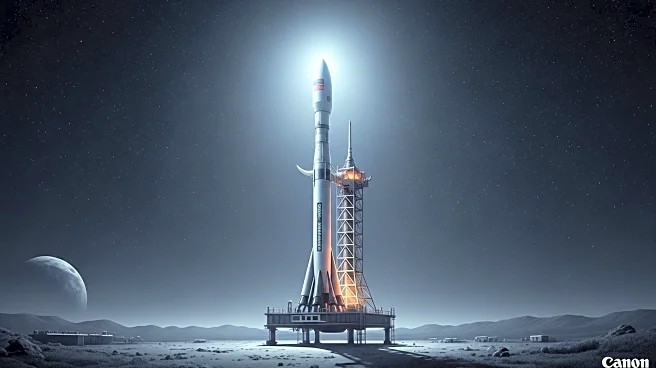What's Happening?
A Senate Commerce Committee hearing raised concerns about NASA's ability to return astronauts to the moon before China. Former NASA administrator Jim Bridenstine expressed doubts about the agency's choice of SpaceX's Starship for the Human Landing System, citing its complex architecture as a potential risk. The hearing highlighted the perceived space race between the U.S. and China, with concerns that the U.S. may fall behind in lunar exploration.
Why It's Important?
The hearing underscores the strategic importance of lunar exploration in the context of international competition. NASA's reliance on SpaceX's Starship, despite its lower cost, may pose risks to the U.S.'s ability to maintain leadership in space. The potential for China to land astronauts on the moon before the U.S. could have geopolitical implications, affecting national pride and technological leadership. The discussion reflects broader concerns about funding and strategic planning for U.S. space missions.
What's Next?
NASA may need to reassess its strategy and consider alternative options to ensure timely lunar missions. The agency could face pressure to accelerate its plans and secure additional funding to compete with China's advancements. The hearing may lead to further scrutiny of NASA's decisions and potential adjustments to its Artemis program.








